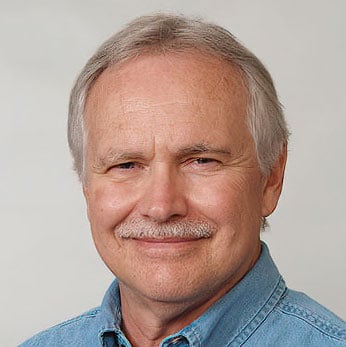The following tip is from the ISA book by Greg McMillan and Hunter Vegas titled 101 Tips for a Successful Automation Career, inspired by the ISA Mentor Program. This is Tip #36, and was written by Hunter.
A college degree is not a reliable indicator of a person’s level of knowledge. I have seen young engineers who expected (and even demanded) respect and deference even though they had done nothing to earn it other than graduating. I can also say that some of the brightest and most knowledgeable mentors I have known never had a degree of any kind. Respect is never awarded – it is earned.
Concept: A college degree is proof that a person attended a bunch of classes and passed some exams. While that person may know a great deal of theory, he or she may know little that is useful to an operating plant. Do not automatically assume that a college degree means a person is exceptionally knowledgeable, and never undervalue a person who lacks a degree.
Details: After enduring years of labs, dull professors, and incomprehensible calculus and thermodynamic classes, a young engineer is rightfully proud of his or her degree. Unfortunately, some engineers feel that the new diploma automatically means they are worthy of a higher level of respect and worse, they begin to look down on their non-degreed co-workers. This is NOT a promising start to a successful automation career!
People may be bestowed with titles but respect is always earned. Even if an engineer is young and inexperienced, he or she can quickly gain the respect of co-workers by respecting others, being eager to learn and help, and by listening. Alternately, an engineer can be experienced and knowledgeable, yet earn no respect due to a condescending attitude and a tendency to belittle others. Treat everyone with respect, regardless of their station in life, and seek to earn their respect through your actions. This simple concept will serve you well throughout your career and life.
Watch-Outs: It is probably best to downplay your advanced degrees and titles unless specifically asked about them.
Exceptions: None.
Insight: Some of the most innovative and interesting information and ideas you will encounter in life will be from people outside of the automation engineering profession. Operators, technicians, supervisors, etc. all know the plant far better than you do. Talk to them, ask their advice, share your ideas with them, and get to know them. You will find the effort well worth your time. When a great idea does come from the ranks be sure that they get credit; otherwise that may be the last idea they ever feed you.
Rule of Thumb: You must earn respect, and show respect to others. An engineering degree (or lack thereof) is a poor indicator of an individual’s knowledge level.
About the Author
Gregory K. McMillan, CAP, is a retired Senior Fellow from Solutia/Monsanto where he worked in engineering technology on process control improvement. Greg was also an affiliate professor for Washington University in Saint Louis. Greg is an ISA Fellow and received the ISA Kermit Fischer Environmental Award for pH control in 1991, the Control magazine Engineer of the Year award for the process industry in 1994, was inducted into the Control magazine Process Automation Hall of Fame in 2001, was honored by InTech magazine in 2003 as one of the most influential innovators in automation, and received the ISA Life Achievement Award in 2010. Greg is the author of numerous books on process control, including Advances in Reactor Measurement and Control and Essentials of Modern Measurements and Final Elements in the Process Industry. Greg has been the monthly "Control Talk" columnist for Control magazine since 2002. Presently, Greg is a part time modeling and control consultant in Technology for Process Simulation for Emerson Automation Solutions specializing in the use of the virtual plant for exploring new opportunities. He spends most of his time writing, teaching and leading the ISA Mentor Program he founded in 2011.
Hunter Vegas, P.E., holds a B.S.E.E. degree from Tulane University and an M.B.A. from Wake Forest University. His job titles have included instrument engineer, production engineer, instrumentation group leader, principal automation engineer, and unit production manager. In 2001, he joined Avid Solutions, Inc., as an engineering manager and lead project engineer, where he works today. Hunter has executed nearly 2,000 instrumentation and control projects over his career, with budgets ranging from a few thousand to millions of dollars. He is proficient in field instrumentation sizing and selection, safety interlock design, electrical design, advanced control strategy, and numerous control system hardware and software platforms.




